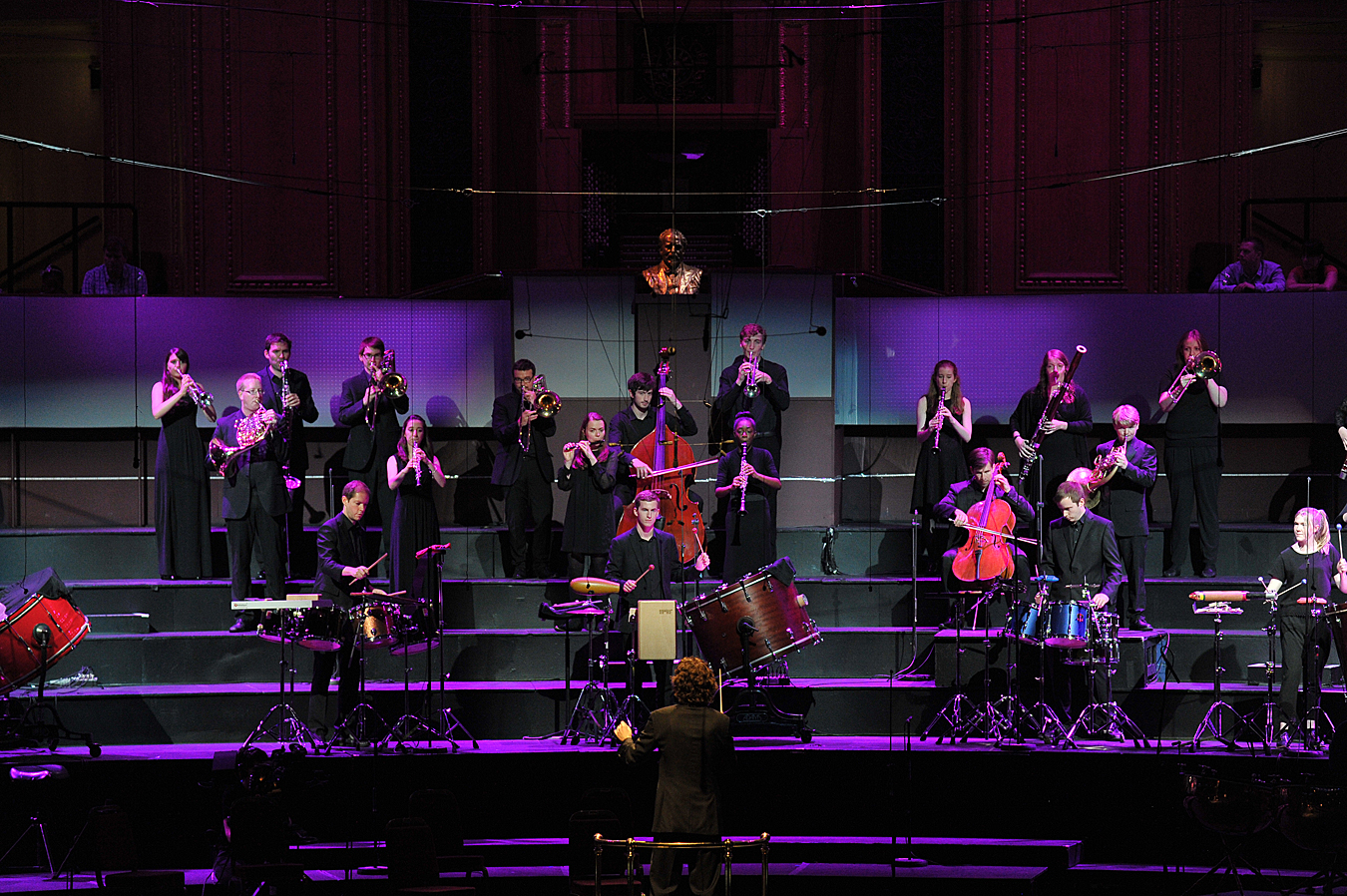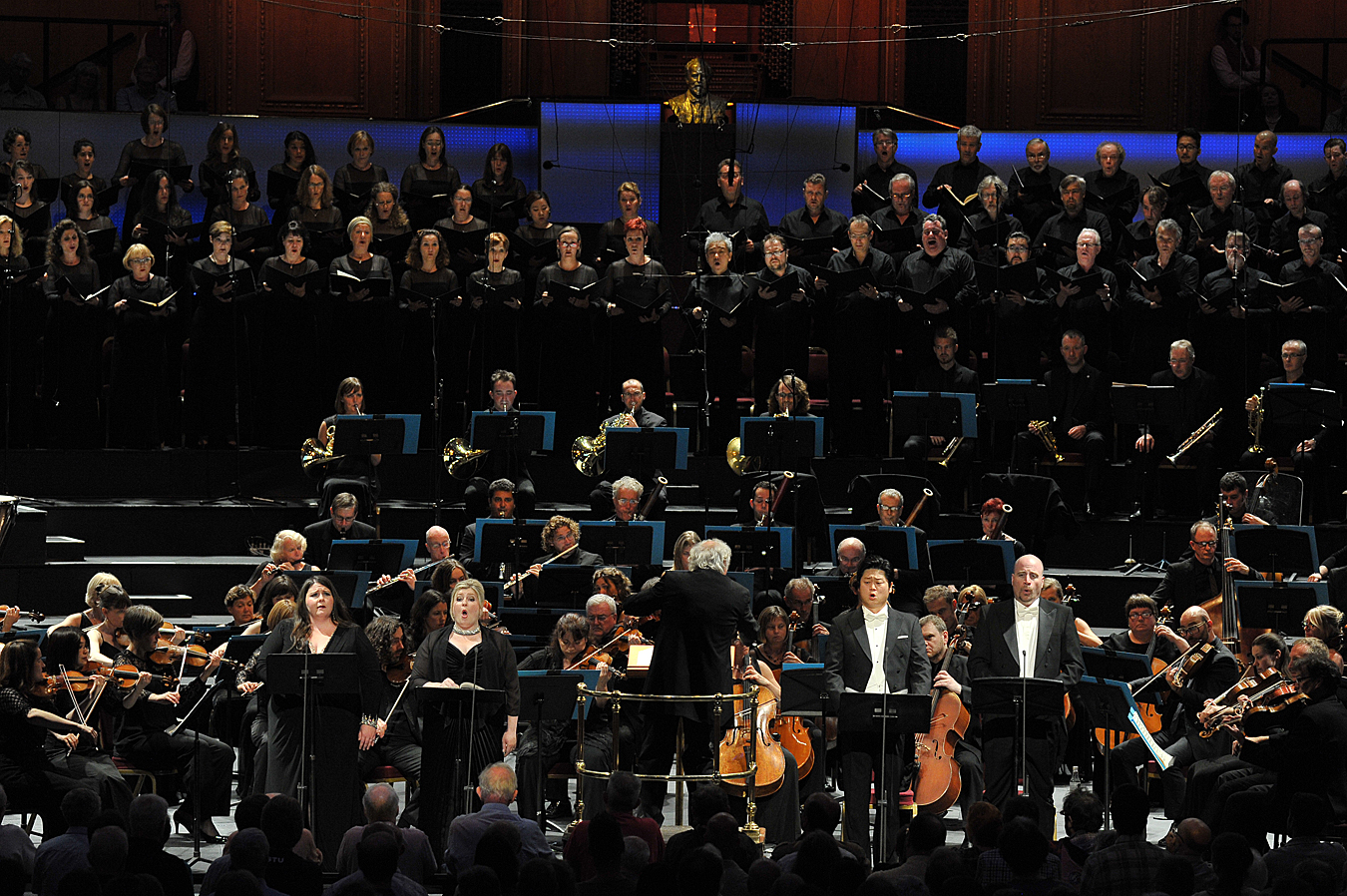Sunday 2 August 2015

Though this was advertised as a family prom there seemed to be very few children in the audience. Maybe the presence of two new works put off some parents. A pity, for both were easily accessible and made an excellent foil for the Mozart and Beethoven.
The Aurora Orchestra has made a virtue of playing from memory though the opening Pastoral Symphony by Brett Dean was securely from the score. Moving back to Australia, the composer was struck by the sounds of nature in the antipodes which are so different from those of the European world. The symphony reflects these differences and also the gradual loss of natural sounds to those of the city and industry. Electronic and recorded sounds are used sensitively throughout, blending in seamlessly with the orchestral instruments, which are themselves used to create breathy, voiceless sounds as well as conventional notation. If the score often sounds closer to Messiaen than to Beethoven this should not imply it is difficult on the ear, with its jazz overtones and pleasing sense of narrative line.
Mozart’s Coronation piano concerto K537 is far less familiar to us than the core concerti and therefore all the more welcome. Soloist Francesco Piemontesi had made his own version of the score as the original is incomplete and in places needs more than a simple reconstruction. The result was totally convincing, with a freshness and intimacy balancing the many touches where Mozart seems to be moving in an entirely new direction. It is a ghostly indication of what he might have achieved had he lived longer.
Anna Meredith’s Smatter Hauler opened the second half and here the Aurora Orchestra were joined by a group of highly enthusiastic, not to say skilled, members of the BBC Proms Youth Ensemble. The work is brash and invigorating, as intended, and for once the use of lighting was highly effective to point to the sections playing and the focus of a particular part of the score. There is more to music-making than thwacking a drum, but it can be infectious and certainly set the hall alight in its brief five minutes. I hope we not only hear the piece again but that it encourages others to commission works from Anna Meredith.
Last season the Nicholas Collon and his orchestra played Mozart Forty from memory, this year it was Beethoven’s Pastoral. In the event this was far more than a feat of memory. With virtually all the players standing there was a freedom to the playing which can’t happen when all are seated and concentrating on the scores before them. There was a frequent sense of dance movement across the orchestra and each musician became a soloist in their own right. Added to this, the need for constant eye contact meant there was a much tighter sense of ensemble. Tempi were fast and buoyant. The birdsong at the end of the slow movement brought us full circle to Brett Dean’s vision of Australian nature, and led us into a joyous relaxed final movement.
The concert is repeated on BBC Radio 3 this Friday at 2.00pm and the concert will be televised on BBC Four on Sunday at 7.00pm – and for 30 days on the BBC iPlayer.


